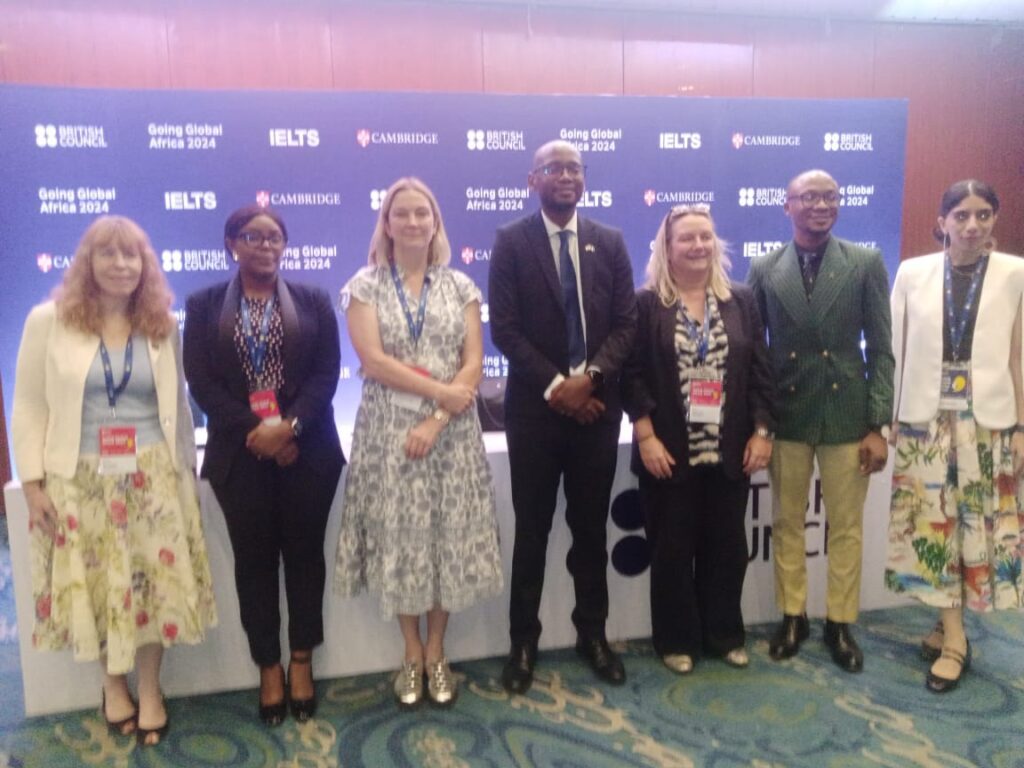By Matthew Denis
In a bid to strengthen greater collaborations, the British Council has commences bridging the skills gap between the academic institutions and industrial sector in Africa.
The Acting country Director of Nigeria, Chilufya Besa made the disclosure on Thursday during a press conference in Abuja.
Speaking on the theme ‘ Going Global Africa 2024, Besa said ” it is about creating relevant and sustainable tertiary institutions system in Africa. This is relevant because there’s a skills gap between what is taught in the institutions and the skills that you need at the workplace.
” We wanted to put an intentional focus in narrowing that gap between institutions and industries. So we brought together industrial stakeholders and academicians to talk together how that gap can be bridged I think we have been able to achieve that in this conference. “
The country Director stressed that there has been collaboration with the Federal Ministry of Education as the minister was present at the opening session and his entire team who participated in the discussions to bring out the key takeaways for the ministry to take action.
He kicked against the notion that there’s setback in the African education sector noting that there has been evidence-based progress.
” I think it’s unfair to say that we’re being take back in the educational sector. There has been progress and some of these progresses have been shared by the delegates who attended the roles of development in terms of how we incorporated technology, tertiary institutions becoming more inclusive but what is true that there is still a lot of progress to be made and that’s why we are commiting energy to the things that are not yet done to make tertiary education more relevance.”
On different policy roadmaps by leaders in the education sector, Mr. Besa explained that this underscores the technocrats that we have in the ministry who were ably represented here to develop firms policies in the system.
He said ” the conference is deliberate that as far as we have political support, have discussions and researches that primarily take place among technocrats, policymakers in the ministry of education, Vice Chancellors and other heads of education, the people who tends to stay and remain consistent throughout they have the power to impact change and guide some of the conversions we have with their ministers.
” I think that we do have consistency and sometimes we do have some changes because new leadership have come in but changes are not always bad it can be good however having technocrats for continuity is key priority. “
Mr. Besa emphasized that the major takeaways in the education sector is the focus on the youths.
He said ” the young people make up 70 percent of African population we have to design systems that answer their needs.
” Another area is inclusion, higher education in particular a lot of progress has been made on basic education level but we still see lower progression rate for marginalized community suh as women and girls, people living with disability, refugees and displaced population which is the focus of this event to ensure that all institutions starts implementing such inclusion.
The highlights of the event were panelists sessions by technocrats in academic and industries, contributions from partners among others.

